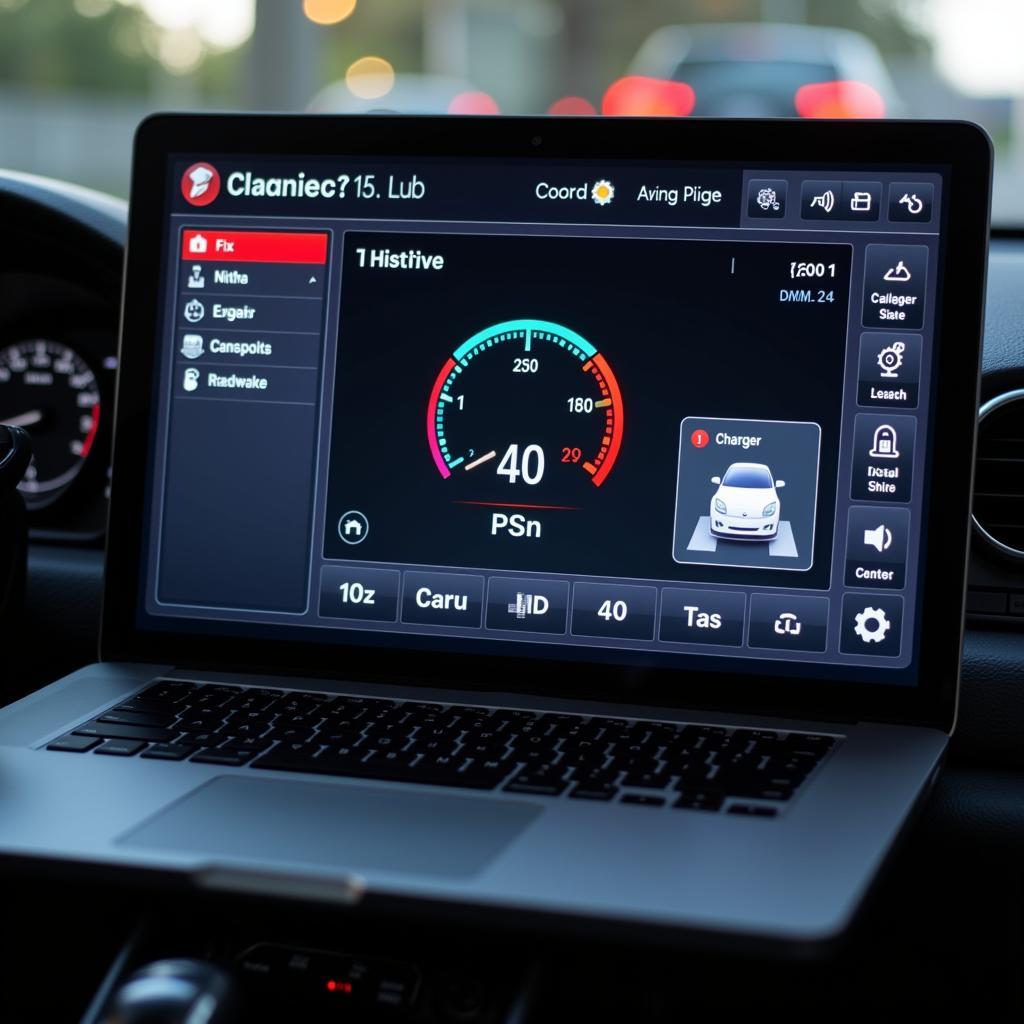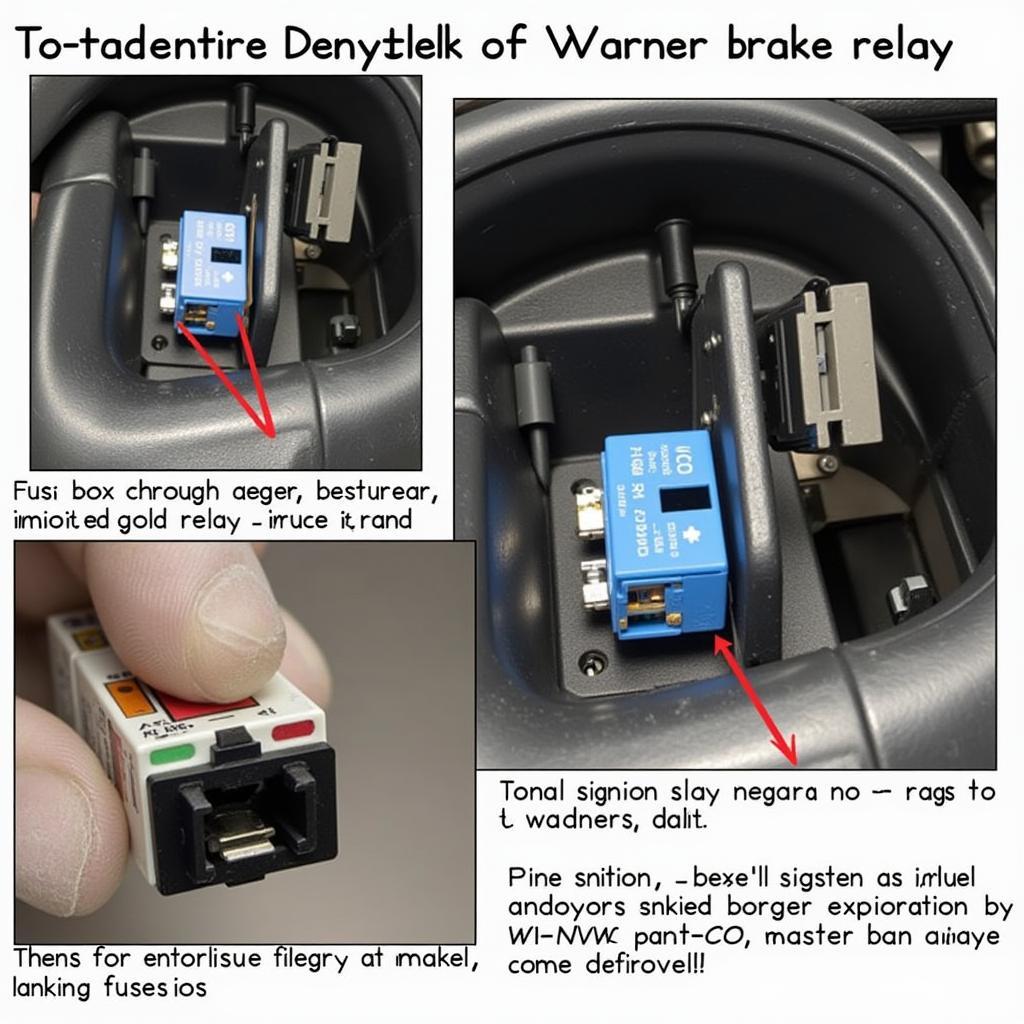The dreaded brake warning light is a common sight for many 2006 Prius owners. It can be a frustrating experience, especially if you’re unsure what it means or how to address it. This comprehensive guide will walk you through the common causes, troubleshooting steps, and potential solutions for a brake warning light on your 2006 Prius.
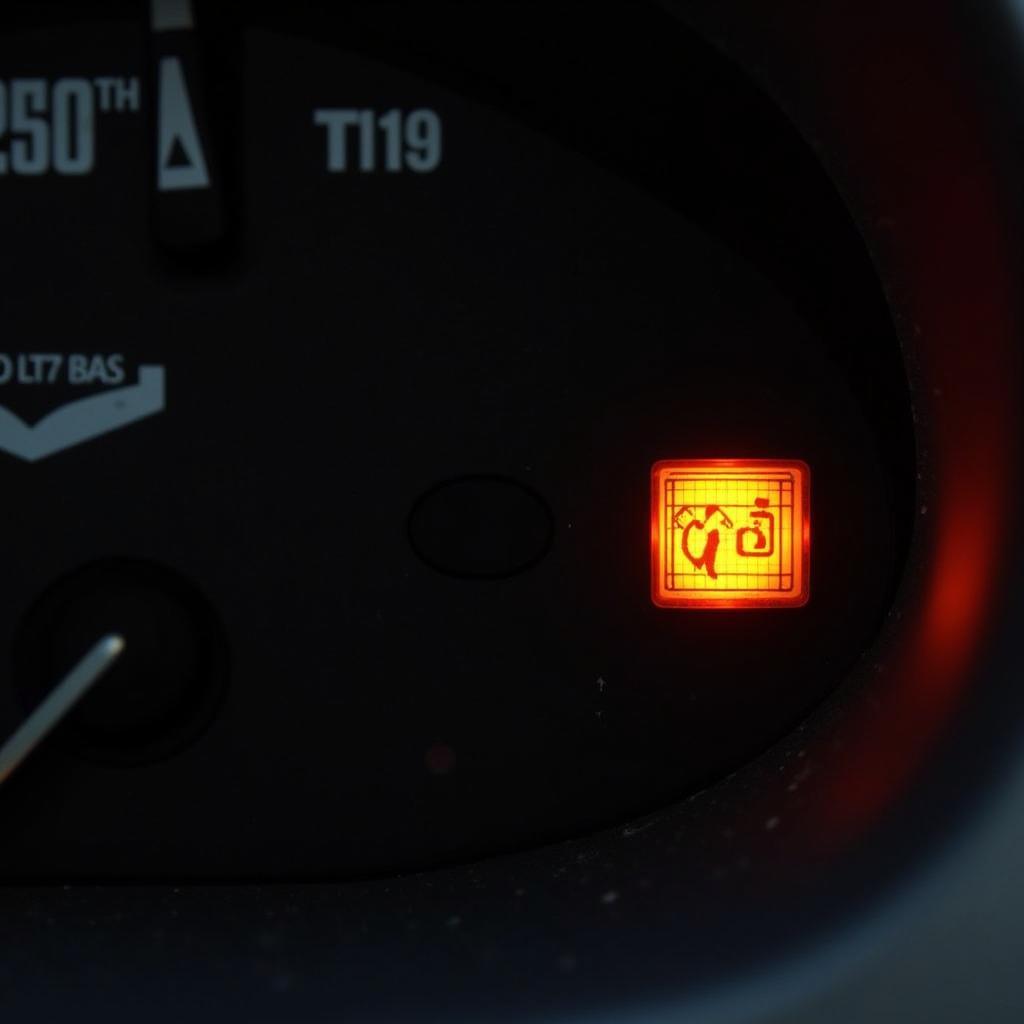 2006 Prius brake warning light illuminated on the dashboard
2006 Prius brake warning light illuminated on the dashboard
Understanding Your Prius’s Brake System
The 2006 Prius is equipped with a unique electro-hydraulic braking system, often referred to as “brake-by-wire.” This system uses a combination of traditional hydraulic brakes and a regenerative braking system powered by the hybrid battery. While incredibly efficient, this complex system can be susceptible to various issues, often indicated by the brake warning light.
Common Causes of a Brake Warning Light on a 2006 Prius
There are several reasons why your brake warning light might be on. It’s crucial to identify the root cause before attempting any fixes. Here are some of the most common culprits:
-
Low Brake Fluid: Just like any other vehicle, low brake fluid is a common reason for the brake warning light to illuminate. This could indicate a leak in the system or worn-out brake pads.
-
Faulty Brake Light Switch: The brake light switch is responsible for activating your brake lights when you press the pedal. If this switch malfunctions, it can trigger the brake warning light.
-
Worn Brake Pads: Your Prius is designed to alert you when the brake pads wear down and require replacement.
-
Issues with the Regenerative Braking System: A problem with the hybrid battery, inverter, or other components of the regenerative braking system can also trigger the warning light.
-
Problem with the Brake Actuator: The brake actuator is a crucial component of the electro-hydraulic braking system. Any malfunctions with this unit can lead to significant braking issues and illuminate the warning light.
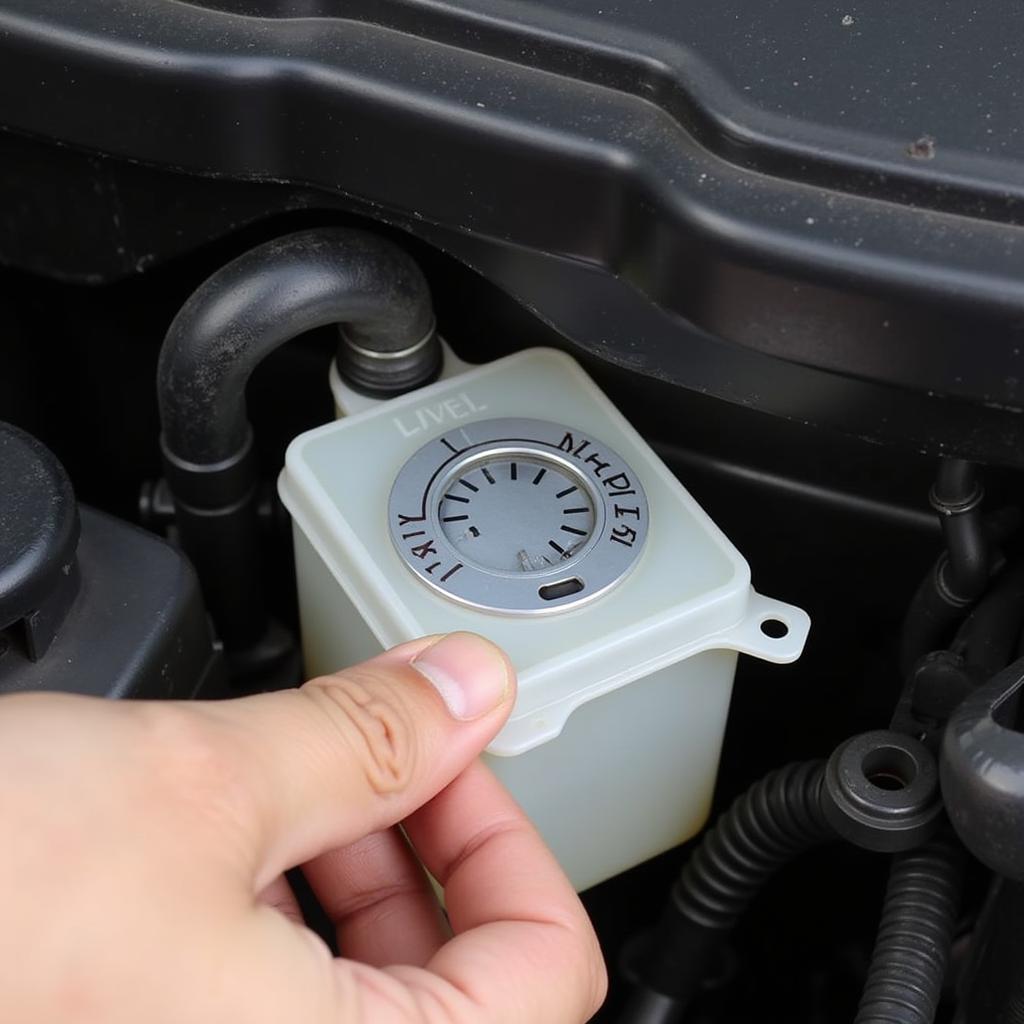 Checking the brake fluid level in a 2006 Prius
Checking the brake fluid level in a 2006 Prius
Troubleshooting Your Brake Warning Light
Before heading to the mechanic, here’s a step-by-step guide to troubleshoot the issue:
-
Check Your Brake Fluid Level: Park your Prius on a level surface and locate the brake fluid reservoir under the hood. If the fluid level is below the “MIN” mark, add the appropriate DOT 3 brake fluid.
-
Inspect Your Brake Lights: Have a friend or family member press the brake pedal while you check if all brake lights are functioning correctly. If one or more lights are out, this could indicate a faulty brake light switch or blown bulbs.
-
Listen for Unusual Noises: When applying the brakes, pay attention to any unusual noises, such as grinding, squeaking, or clicking. These could be signs of worn brake pads or other issues.
-
Feel for Changes in Brake Pedal Feel: Does the brake pedal feel spongy, unusually hard, or go too far down? This could indicate air in the brake lines, a faulty master cylinder, or other problems within the braking system.
When to Seek Professional Help
If you’ve checked the basics and are still experiencing issues, it’s best to seek professional help. Diagnosing problems with the electro-hydraulic braking system often requires specialized equipment and knowledge.
“The brake system in your 2006 Prius is complex. Attempting DIY repairs without proper knowledge can be dangerous,” warns John Smith, a certified Toyota mechanic with over 15 years of experience. “If you’re unsure about anything, it’s always best to consult a professional.”
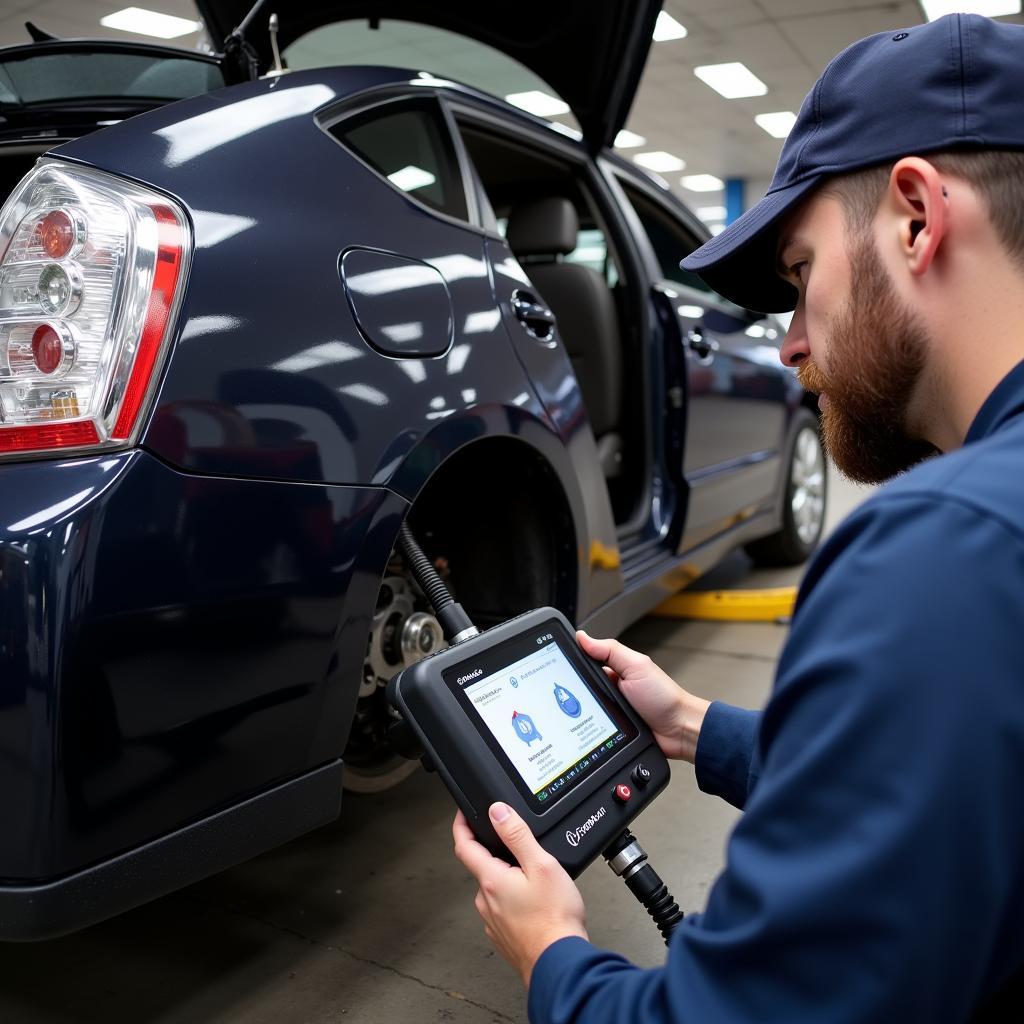 Mechanic inspecting the brake system of a 2006 Prius
Mechanic inspecting the brake system of a 2006 Prius
Conclusion
A brake warning light on your 2006 Prius should never be ignored. It’s a crucial safety indicator that shouldn’t be taken lightly. By understanding the common causes, following the troubleshooting steps, and knowing when to seek professional help, you can keep your Prius running smoothly and, most importantly, ensure your safety on the road. Remember, when it comes to brakes, it’s always better to err on the side of caution.

